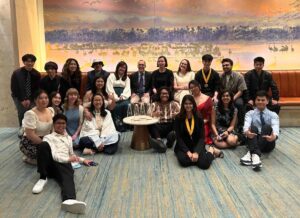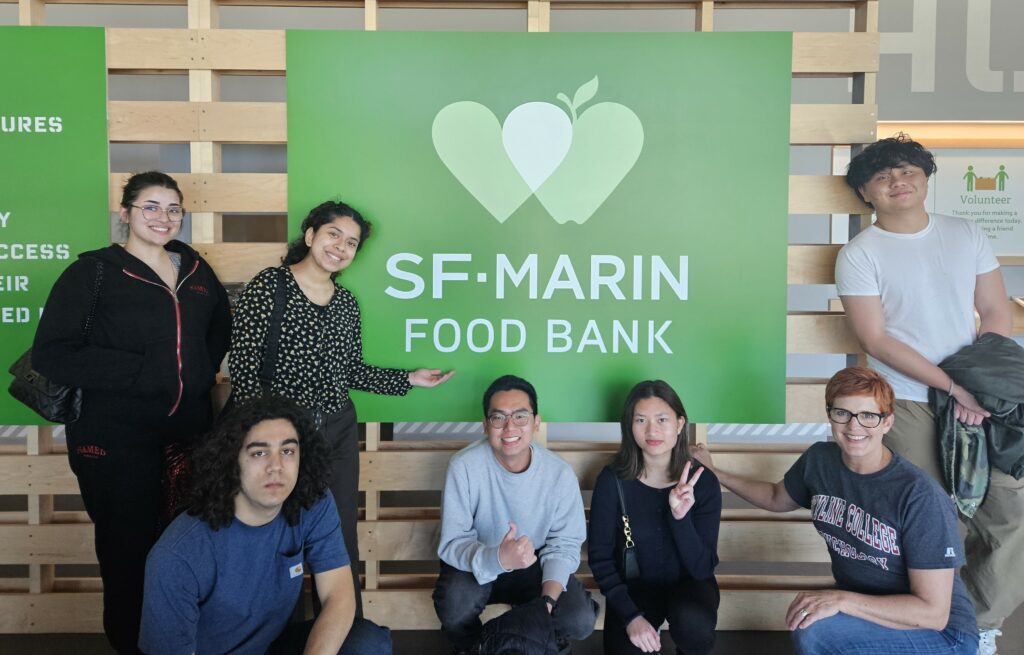 As Skyline College reviews and revises its strategic goals and initiatives and moves full steam ahead with the College Redesign, discussion has dwelled on how to foster active citizenship.
As Skyline College reviews and revises its strategic goals and initiatives and moves full steam ahead with the College Redesign, discussion has dwelled on how to foster active citizenship.
The assessment of the Citizenship Institutional Student Learning Outcome lends insight to this goal. In spring 2016, eighteen faculty members from across the disciplines assessed students’ work. One rubric criterion pertains to commitment to active citizenship. Of the 143 students’ work as the basis of the evaluation, 16% were deemed to be at “no/ limited proficiency,” 34% at “some proficiency,” 36% at “proficiency,” and 15% at “high proficiency.” In short, the majority 85% at least demonstrate awareness of issues. The finer distinction is between those who take action on the individual versus larger scale level. Whereas 34% with “some proficiency” may make conscious choices and change their own daily habits, the 51% at the “proficiency” and “high proficiency” levels attempt to have an impact beyond their individual selves by at least demonstrating preparedness to take action. (For all of the results, please see http://skylinecollege.edu/sloac/assets/islos/citizenship%20islo%20results%20spring%2017.pdf . )
A more nuanced picture emerges from analysis of the relevant items from the Community College Survey of Student Engagement (CCSSE) that was administered in spring 2016, with over 900 survey respondents. For the two standard items, scores were provided for the past two administrations in 2012 and 2008. Five additional custom questions were created to assess active citizenship.
For one standard item, the mean score steadily increased pertaining to the College emphasizing students learning about “contribut[ing] to the welfare of [their] communities” (From 1.96 to 2.05 to 2.15, with 2 signaling “some”).
As opposed to what survey respondents are exposed to at the College, what are survey respondents actually doing? Fifty-eight percent indicated that they spend no hours each week “participating in unpaid activities within any community setting…[beyond their] college.” As a counterpoint, 28% spend from one-to-five hours per week, which is substantive considering that the majority of student respondents work. (For all of the results, please see http://skylinecollege.edu/sloac/assets/islos/ccsse%20citizenship%20sp18.pdf . )
Discussion of these results from the Institutional Effectiveness Committee (IEC) centered on how we can facilitate growth in this area, given that it’s one of the college community’s priorities. Among the points made were: (a) that the College needs to structure the experiences for students to have these opportunities, for instance arranging for partnerships with local agencies and organizations, (b) how to be mindful of balancing this civic experience with the majority students’ need to work, (c) casting some scholarships so that students need to articulate and commit to how they will contribute some way to the larger community, (d) defining what we mean by “service learning,” and granting that it can be paid, (e) exploring different approaches to measuring its presence and impact on the campus.
As college-wide initiatives and the IEC committee discussion demonstrate, there is much interest in empowering students to be change agents. To that end, a Community of Practice on Service Learning will continue to explore how to create opportunities for students, including co-curricular components of their classroom experiences. You’ll learn about this CoP at the fall flex day. And if you are interested in joining these efforts, please contact Sociology Professor Rika Fabian, Paralegal Studies Professor Jesse Raskin, and/or Academic Support and Learning Technologies Dean Jim Houpis.
Article by Karen Wong






